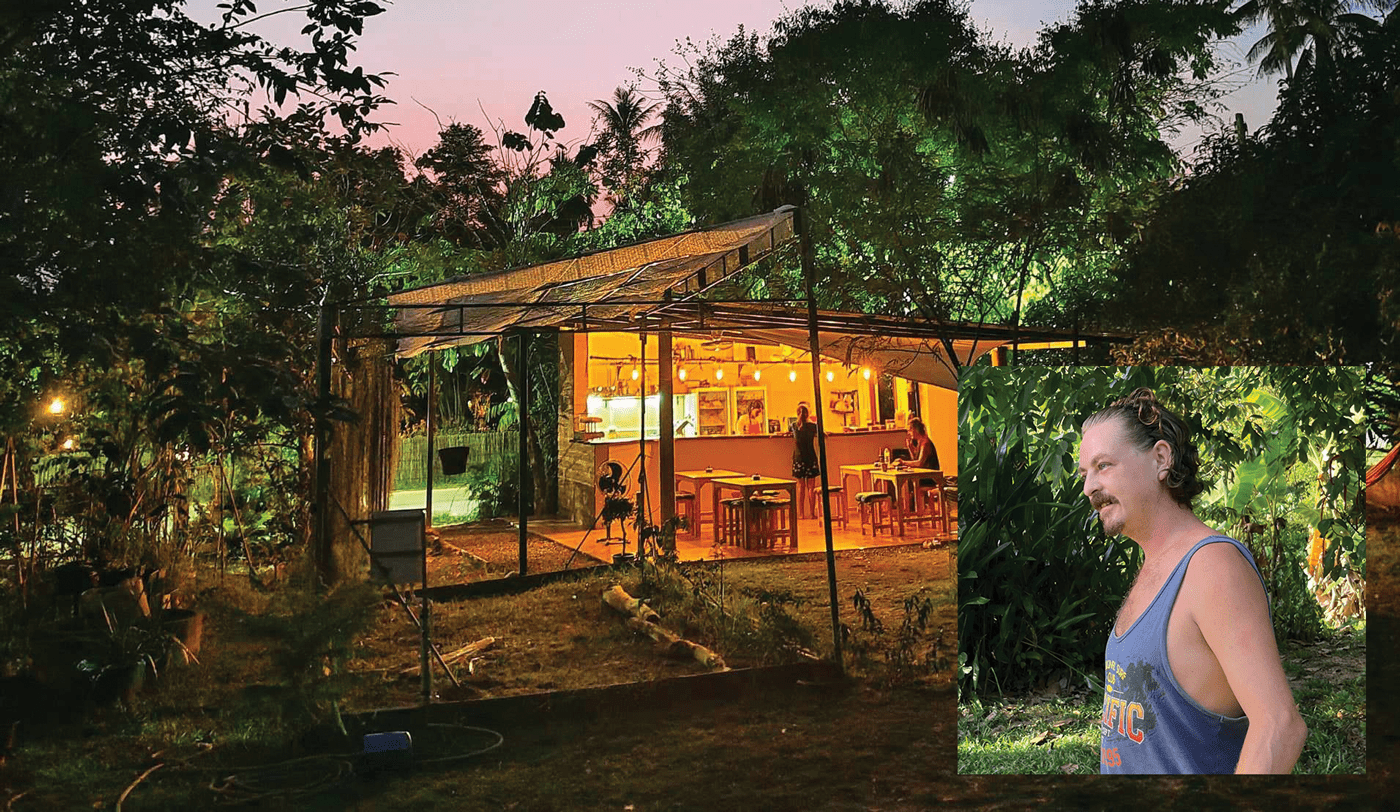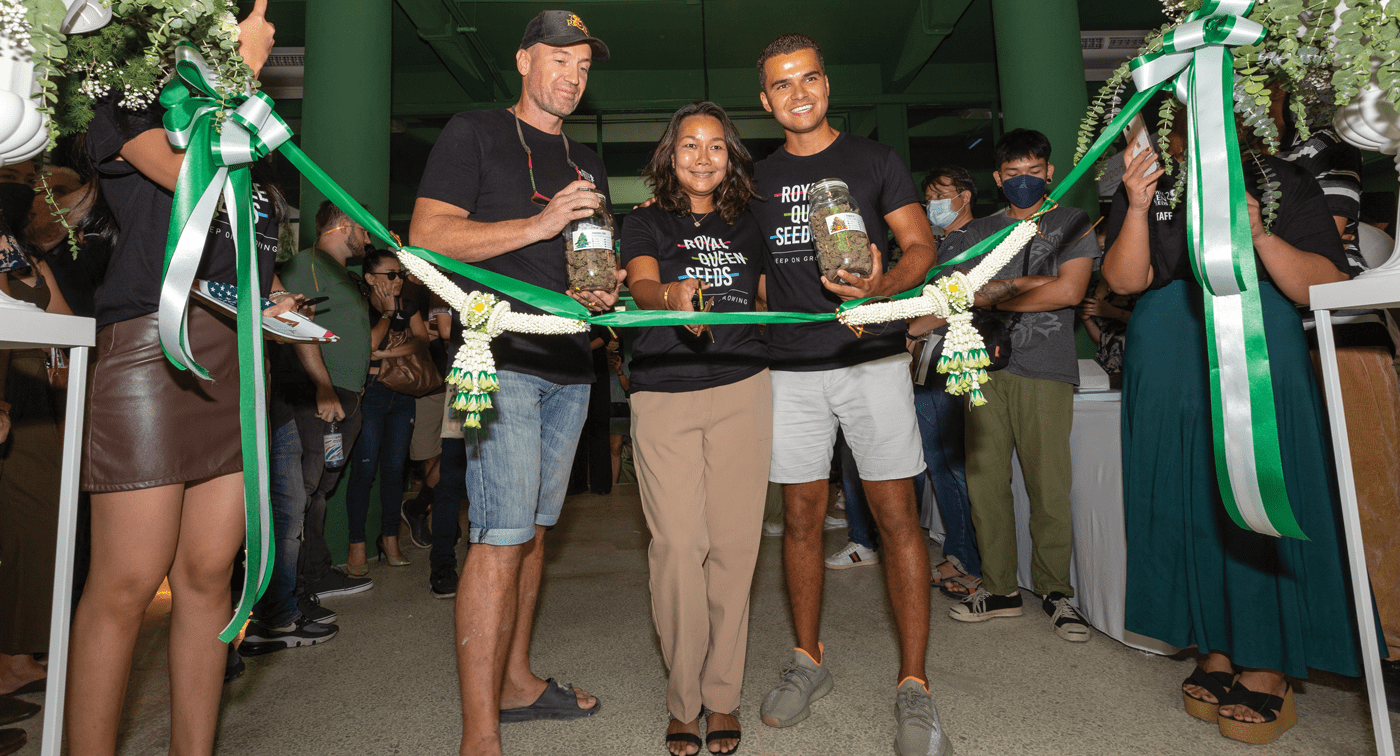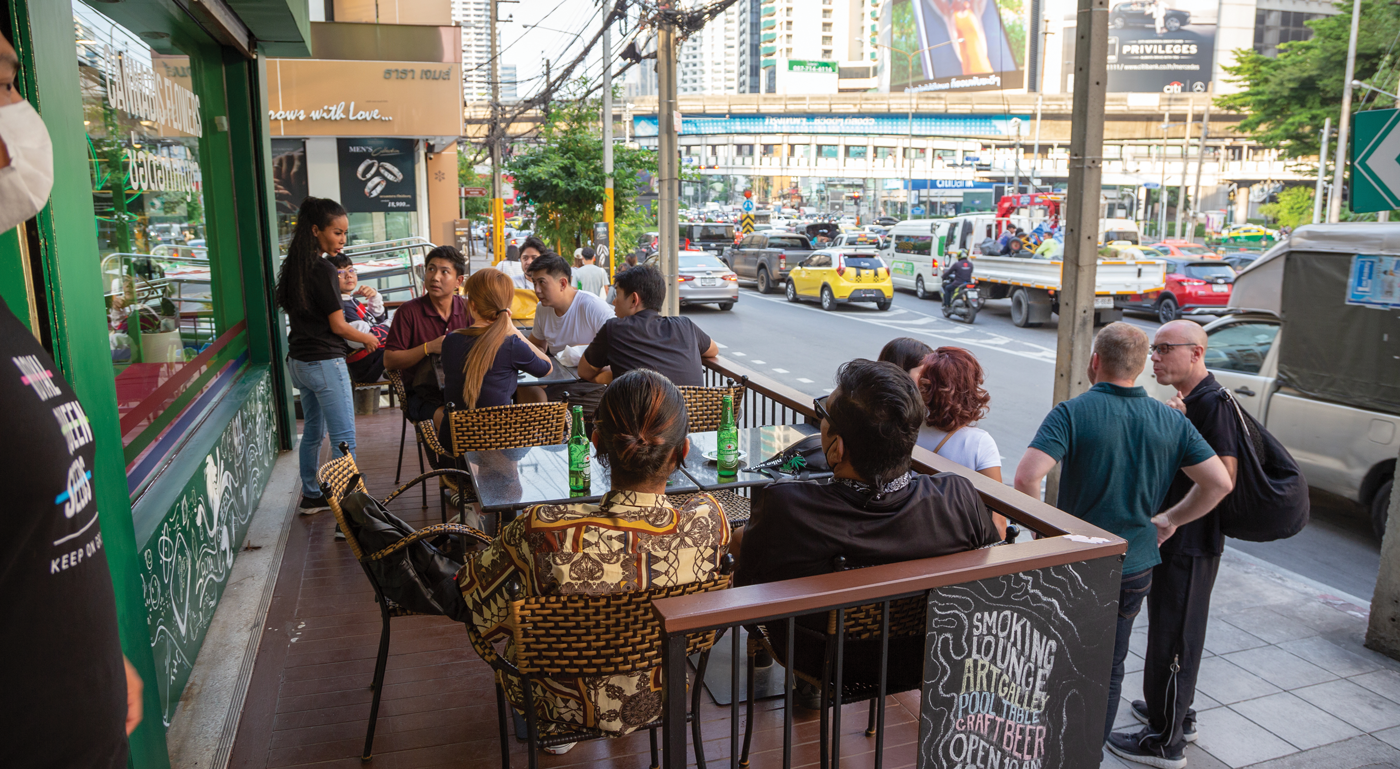After decades of prohibition, Thailand embarked on a historic shift in its approach to cannabis. After Thailand became the first country in Southeast Asia to allow medicinal use in 2018, and then recreational use in 2022, tens of thousands of cannabis shops sprung up to get their piece of a pie that was projected to be very large — up to $1.2 billion. The move not only signaled a progressive stance on the medicinal benefits of the plant but also held promise for economic opportunities in the region’s emerging cannabis industry. Then they backtracked. What changed?
What Went Wrong
Little more than a year after cannabis decriminalization, a more conservative coalition government came into power, and the leadership is fueling talk that “drugs are bad” for Thai children and could lead to use of other drugs. Back in 2022, the Thai Ministry of Public Health stated that recreational use was never part of their plan, and instead they delisted cannabis as a narcotic with the intention of aiding in wellness and to help the economy. However, there was no legal framework that was put into place to stop adult-use cannabis businesses from opening. It was the “Wild Wild East,” you could say.
In January, Thai leaders announced they would ban recreational use of marijuana by the end of 2024 but continue to allow its use for medical purposes, the health minister told news agency Reuters in an interview. Prime Minister Srettha Thavisin pledged in September that his new government will “rectify” laws on cannabis within the next six months.
“We drafted this law to prohibit the wrong usage of cannabis,” said the health minister Cholnan Srikaew to Reuters. “All recreational usage is wrong.”

Craft Growers
Kenny Oesch is a grower at his combo dispensary and restaurant on the island of Koh Phangan. Called Swiss Farmacy, the shop officially opened on January 30, 2024, after months of planning. Oesch makes his own artisan sausages, hams, breads, and more from scratch and specializes in paninis in addition to weed. He uses the CO2 from the growroom to carbonize water for homemade sodas.
He is an organic enthusiast who grows in no-till living soil. He has a worm farm and an aloe vera farm which they use as an organic root enhancer. Their water comes from rain water or an on-site pond water. Getting access to good quality supplies for growing is difficult too, so he makes his own. “We make the soil, fertilizers, bacteria, fungi treatments, everything,” he says. “Anything we use that is not from us is OMRI-certified.”
Oesch came to Thailand with his parents in 2009, when he was 15. His father has had a brain tumor since 1997 and endures constant headaches. Oesch says the air pressure in Thailand is different than in his native Switzerland, and he felt better there. “He was a grower in Switzerland for over 40 years,” Oesch says. “Basically, I was in the field with him as soon as he could take me into the field.”

Oesch primarily tries to grow varietals that no one else around him is growing. “The majority of people here are growing household names,” he says. Everybody has a Girl Scout Cookies, he says. Oesch is growing, for example, a Pie Face variety, which he says is a cross between Cherry Pie and Face Off. “Super delicious smoke and nobody’s growing it,” he says.
It’s always been easy to get cannabis in Thailand, but it was risky. Oesch said, when we first spoke in November 2023, that so many people in Thailand were smoking cannabis that it would be difficult for it to not be legal anymore. “There’s so much national and international money that went into the whole thing, it’s hard to put the cat back in the bag if you know what I mean,” he says. Oesch supports regulation — “I don’t want kids smoking in the schoolyard,” he says — but he also says that many people who got into the business right after legalization didn’t know anything about cannabis and weren’t focused on quality. “All they saw was the money. But I’m a grower. I focus on quality more than quantity.”
Thailand’s Green Rush
Thailand saw a brisk “green rush” once the prohibition was lifted, with cannabis dispensaries popping up across the kingdom. At the time we spoke, Oesch said there were about 230 dispensaries on Koh Phangan island, which is only 48 square miles. Cookies opened up shop in Bangkok. So did European seed bank Royal Queen Seeds. Oesch says new dispensaries were popping up every week while another was closing. “There’s only so many people that can buy weed at a time,” he says. “And that just leads to most shops just constantly being empty.” He rightly predicted that recreational legalization wouldn’t last, and that they would return to medical use only.
Oesch says the grower community in Thailand is close, especially among people like himself who are into the craft and into quality. But, he says, with the huge influx of people into the industry, he says, the quality ranges from “really, really bad to absolutely awesome.” “It really depends where you are,” he says. “And I think that what will shape the market in the next few years is the guys who produce good weed, ethically grown and sustainably, they will have customers. The guys who still try to push the lesser quality weed will close sooner or later. That’s what I see coming.”
Oesch is only interested in following the law, he says. All extracts and their related products are still illegal, and that’s not likely to change. “I can finally legally sell weed,” he says enthusiastically. “I don’t want to lose my license because I get caught with some hash.”
Another thing that is likely to change is that more restrictions on usage will be in effect. With legalization, the minimum age to buy, possess, and use cannabis in Thailand is 20-years-old. Cannabis is illegal for possession and use by those who are pregnant and/or breastfeeding, except with the permission of a doctor. Under the 2022 change, cafes and restaurants were allowed to serve cannabis-infused food and drinks – but only if the products contained less than 0.2% THC. Smoking in public remained illegal, although many people still did it. The influx of weed also drove the price down to $6 a gram in some cases.
As Thailand navigates the complexities of cannabis regulation, it is clear that finding the right balance between public health concerns, economic opportunities, and individual freedoms remains a challenge. While the initial enthusiasm for legalization paved the way for a booming cannabis industry, the subsequent backlash and proposed restrictions highlight the ongoing debates surrounding appropriate usage and control measures. Ultimately, the future of cannabis in Thailand will depend on the ability of policymakers to address societal concerns while fostering a responsible and sustainable industry that prioritizes quality, ethics, and transparency. The lessons learned from this pioneering experience in Southeast Asia will undoubtedly shape the broader discourse on cannabis legalization across the region and beyond.


